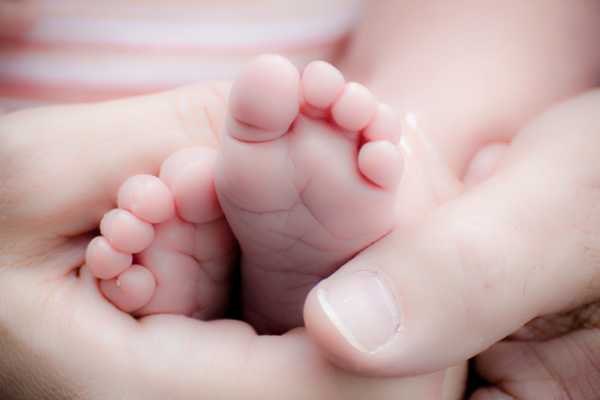Earlier this year, some sidewalk chalking provoked a school-wide debate over free speech. A student political organization wrote phrases on the sidewalk which many found offensive. In response, administration designated a free-speech zone for political statements.
Some students responded to this issue by citing over-sensitivity as a problem on this campus. They said that those who were offended were oversensitive, immature, and ought to grow thicker skin. They connected the outlash to the larger national problem of over-sensitivity.
So why do people get offended easily nowadays?
Let’s first look at what it means to be offended. The dictionary definition of “offended” is to be resentful as a reaction to a perceived insult. It’s synonymous with affronted, insulted and wounded. In all of these words, the emotion word is a past participle of a verb. When someone is offended, it’s because someone else offends them. When someone is insulted, it’s because someone else insults them. No matter what word is used, it’s grammatically evident that two parties are involved: those who get hurt and those who do the hurting. Emotional reactions don’t exist in a vacuum. Rather, some external event elicits a reaction. The type and intensity of the emotional response depends on context. This context includes who made the remark, how often it’s been said, and the thought behind the words.
Let’s return to the example on my campus. One of the most offensive statements chalked on campus was “Build a Wall." This slogan comes directly from Donald Trump’s campaign, referring to his proposal to build a wall along the US-Mexico border. To Trump’s supporters, this slogan represents a cry for increase in national security. However, to a large part of the immigrant population, particularly those from Mexico, the phrase represents Trump’s xenophobic rhetoric which has taken the nation by storm. The phrase “Build a Wall” reflects the increasingly xenophobic attitude of the general public towards immigrants, both documented and undocumented. There are students on my campus who are Mexican immigrants or relatives of Mexican immigrants. Some of them may have family on the other side of the border. When students see those statements written on campus, many perceive it as a direct threat to themselves or their family. When these students see “Build a Wall” written on their campus, they feel unwelcome here.*
*I am not a Mexican immigrant, so I cannot say for certain what they feel. Not all Mexican-American students at my college agree on this issue. The reactions I shared are based on what I’ve heard from many friends and classmates who are of Mexican descent.
Photo Credit: Marlen Gomez
Latinx students responded with outrage. They pushed for greater awareness of racism on campus, holding administration accountable. Naturally, this protest was met with some more backlash. Some said that the protesters were really just people lacking emotional maturity. They’re being too sensitive. Those who spoke against the protests used “sensitive” in a derogatory manner.
But what does it really mean to be sensitive?
Let’s look again at the definition. To be sensitive means to be easily hurt, highly responsive, or acutely aware of changes in one’s environment. Synonyms for sensitive include reactive, responsive, and perceptive. These synonyms reflect two key components of sensitivity: emotional reactivity and awareness. While the emotional aspect is often criticized, the awareness aspect gets overlooked. However, ability to detect small changes in one’s environment plays a key role in sensitivity.
You’ve probably heard someone say, “people nowadays are just so sensitive!” However, if we remember that awareness is an important part of sensitivity, what is this person really saying? Replace “sensitive” with a synonym. People nowadays are too responsive. People nowadays are too perceptive. Does it make sense to criticize someone for their reaction now? Understanding sensitivity as awareness rather than overreaction may give light to a larger issue at hand. Take microaggressions, for example. A microaggression is a subtle remark that offends a marginalized group. Someone who speaks out against a microaggression is often met with further backlash: Grow up. Grow a pair. Stop being so sensitive! However, microaggressions are often a reflection of some more deeply-rooted bias, such as racism. So when people react to microaggressions, they’re not just reacting to a statement; they’re reacting to the ideology that lead to that statement. Reaction to racism is very much a political response. Their reaction crosses from the personal into the political.
When someone is offended, we respond in one of two ways. We either are annoyed by their over-sensitivity, or are empathetic towards their struggle. Regardless, we don’t like to see people get offended. We want to prevent this from happening. So how do we stop it? Sure, we could keep saying "you're too sensitive!". We could keep writing “Build a Wall” on the sidewalk, use “freedom of speech” to justify our actions, and just tell people it’s their fault for feeling offended. We could continue shaming people for their emotional reactions. But in doing so, we keep perpetuating the idea that it’s unacceptable to feel hurt. Alternatively, we could try to understand why someone feels hurt in the first place. Coming to an understanding will not be easy. There will always be situations where we can’t fathom someone’s reaction, where their reaction is so unrelatable that we dismiss their feelings as “over-sensitivity”. But if we take the time to listen to their reactions, to allow them to be emotional, we may learn something. The question, then, turns from Why are they so sensitive? to Why am I not sensitive?






















